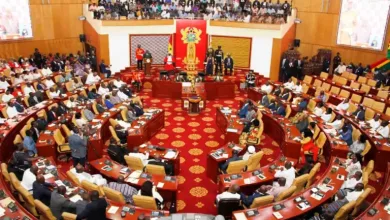Bawumia Assures Economic Reforms Will Be in Line with IMF Agreement

- Dr. Mahamudu Bawumia's economic agenda aligns with the IMF programme.
- He proposes reducing government expenditure by 3% of GDP.
- Tax cuts of less than 0.5% of GDP are planned.
- Bawumia suggests amending the Fiscal Responsibility Act for tighter fiscal rules.
The New Patriotic Party (NPP) flagbearer, Dr. Mahamudu Bawumia, has reaffirmed his commitment to aligning his economic agenda with the International Monetary Fund (IMF) programme currently guiding Ghana’s financial stabilization efforts. This assurance comes amid concerns raised by economic analysts about the potential impact of certain policies on the country’s revenue streams and IMF-backed stabilization measures. During a media engagement on Sunday, August 25,
Dr. Bawumia addressed these concerns by emphasizing his administration’s commitment to economic growth coupled with fiscal discipline. He assured that his policy framework would support the objectives of the IMF programme while also addressing the nation’s economic challenges.
Dr. Bawumia highlighted that his proposals would bring down government expenditure by 3% of GDP, creating space to fund his proposed tax cuts, which would amount to less than 0.5% of GDP. He emphasized the importance of maintaining fiscal sustainability, ensuring that his policies would not disrupt the IMF programme’s objectives.
Additionally, Dr. Bawumia proposed an amendment to the Fiscal Responsibility Act, making the Fiscal Responsibility Council independent, similar to the Monetary Policy Committee of the Bank of Ghana. This amendment would provide oversight of fiscal responsibility and introduce a tighter fiscal rule, ensuring that expenditure does not exceed 105% of the previous year’s tax revenue.
Dr. Bawumia’s assurances aim to alleviate concerns about the potential impact of his economic policies on the country’s financial stabilization efforts. By aligning his agenda with the IMF programme, Dr. Bawumia demonstrates his commitment to responsible economic management and fiscal discipline.






